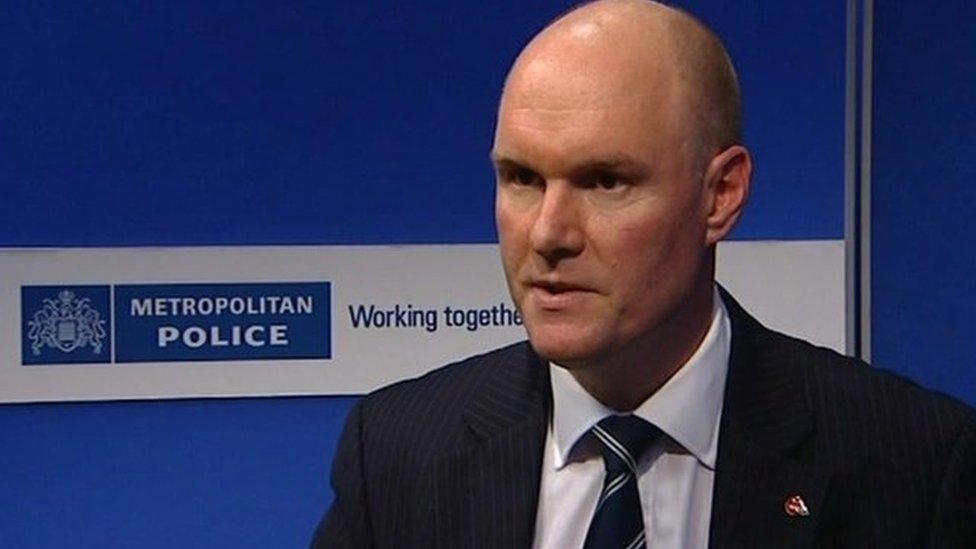Police bail limit of 28 days comes into force
- Published
Brandon Lewis said there was no end in sight for many on bail
A 28-day limit on police bail has come into force in England and Wales.
The move follows criticism of people being kept on police bail for months or years without charge in investigations such as Operation Yewtree - into historical sexual abuse - and others.
Home Secretary Amber Rudd said the reforms brought "much-needed safeguards" over police bail.
The Police Federation of England and Wales said the limit will mean a "massive change" in custody culture.
Police bail can still be extended for up to three months more in complex cases with the authorisation of a senior police officer, or even further by applying to a magistrate.
'End to injustice'
Police use pre-charge bail when they have questioned a suspect, but need time to continue their investigations before determining whether to charge them.
A suspect is released from custody, sometimes with conditions attached, and told to report back to a police station at a later date.
Previously, there was no legal limit on how long someone could be bailed for.
The 28-day limit is one of several measures taking effect on Monday through the Policing and Crime Act 2017, external.
The limit is designed to reduce the amount of time people spend on police bail and strengthen safeguards for suspects.
In a number of high-profile cases suspects were kept waiting for long periods of time before being told whether they would be charged.
In 2015, broadcaster Paul Gambaccini - who was once held on police bail for a year - backed the 28-day limit.
In 2013, Mr Gambaccini was arrested on suspicion of historical sexual abuse but the case against him was dropped.
The Home Office said the change "brings an end to the injustice of people being left to languish on very lengthy periods of pre-charge bail".
'Legality and proportionality'
Home Secretary Amber Rudd said: "Pre-charge bail is a useful and necessary tool but in many cases it is being imposed on people for many months, or even years, without any judicial oversight - and that cannot be right.
"These important reforms will mean fewer people are placed on bail and for shorter periods.
"They will bring about much-needed safeguards - public accountability and independent scrutiny - while ensuring the police can continue to do their vital work."
The College of Policing previously criticised the proposals, warning it could hamper communication between police forces about potentially dangerous suspects.
David Tucker, crime lead at the college, said: "The new legislation is a significant change for policing and has sought to strike a balance between the need for police to manage investigations and not leaving a person suspected of a crime on bail for an unacceptably long period.
"We recognise this is a major change for policing and we are supporting our members by providing high-quality training materials to help them continue to manage investigations to bring criminals to justice and protect the public."
Andy Ward, deputy general secretary of the Police Federation of England and Wales, said the new limit could be unrealistic in complicated investigations.
He added: "Cyber-crime, for example, requires computers to be seized and equipment to be interrogated to gain evidence.
"The results for detailed forensic tests also take some time to come back."


Have you ever been held on police bail? What is your reaction to the changes? Share your views and experiences by emailing haveyoursay@bbc.co.uk, external.
Please include a contact number if you are willing to speak to a BBC journalist. You can also contact us in the following ways:
WhatsApp: +447555 173285
Tweet: @BBC_HaveYourSay, external
Send pictures/video to yourpics@bbc.co.uk, external
Send an SMS or MMS to 61124 or +44 7624 800 100
- Published28 September 2016

- Published12 November 2015
